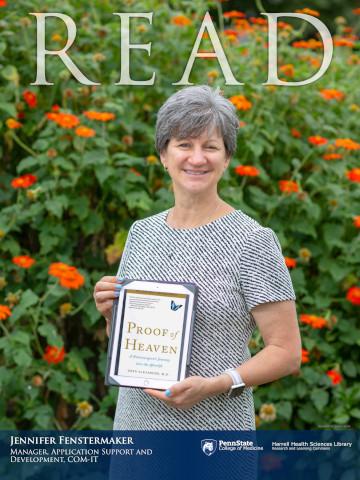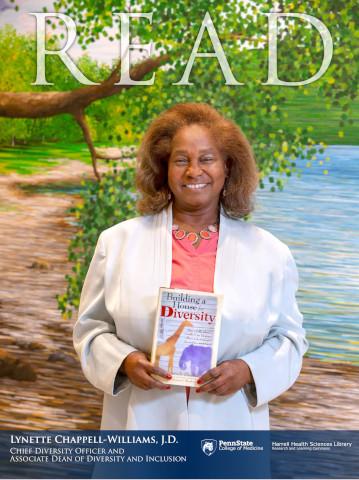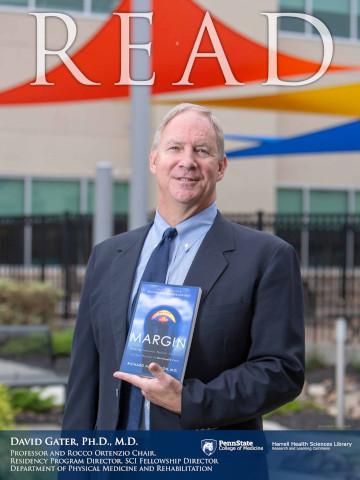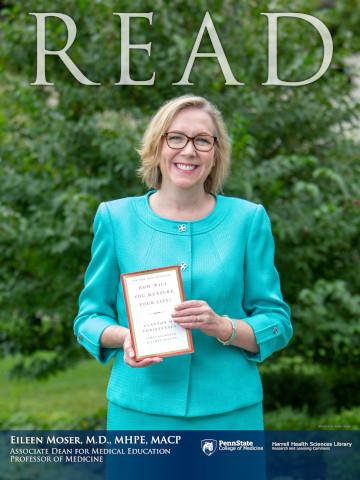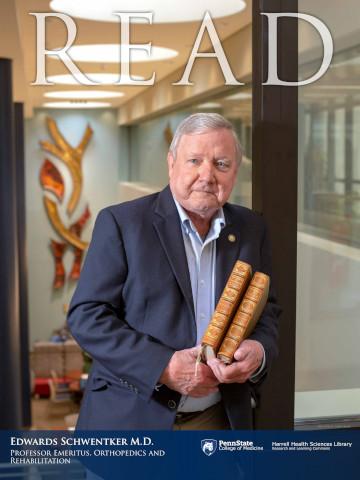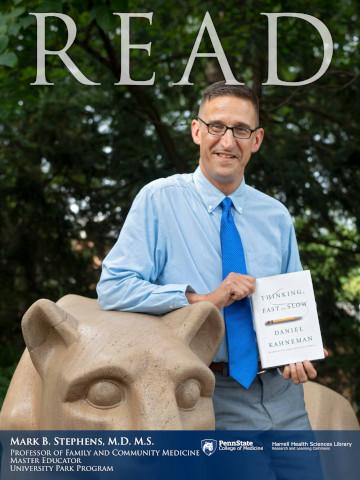Jennifer Fenstermaker
Manager, Application Support and Development, COM-IT
Proof of Heaven: A Neurosurgeons Journey into the Afterlife Eben Alexander
The reason why I have chosen the book “Proof of Heaven: A Neurosurgeon’s Journey into the Afterlife” by Dr. Eben Alexander is because I have always had a curiosity of the afterlife. After watching an interview featuring Dr. Alexander, I felt compelled to read the book. Dr. Alexander is described as a highly skilled neurosurgeon and scientist, and once argued that near-death experiences (NDE) were impossible. Yet after his own NDE, he was able to recall the details of his journey and write this remarkable book. Dr. Alexander’s personal story changed my perception of the afterlife and gave me a sense of comfort knowing that I will be reunited with my loved ones.
The team in the Harrell library are extremely dedicated to our students and faculty. I have personally experienced a team of friendly and professional staff that truly provides exceptional customer service to everyone they serve. I am honored to be nominated for the READ program.
Lynette Chappell-Williams, J.D.
Chief Diversity Officer and Associate Dean of Diversity and Inclusion
Building a House for Diversity Roosevelt Thomas
Reading has been a significant part of my personal life, something I passed on to my daughter, Paris. In fact, as soon as I learned I was pregnant, I immediately enrolled her in a book of the month club and started collecting the books before she was born. I still recall receiving a call from the publisher asking how my daughter was enjoying her books. When I shared that she had not been born yet, there was a long pause!
Reading has also been a significant part of my professional life as well. One book that has been a staple is Building a House for Diversity by Roosevelt Thomas. The book begins with a fable about an elephant and a giraffe who are acquaintances. The giraffe is proud of a new house he has built, even though it has narrow hallways, high windows, and a fragile infrastructure, all of which make it impossible for the elephant to visit him. In the fable, the giraffe makes recommendations about what the elephant can do to be included, and not what he can do. The elephant doesn’t agree with any of the recommendations, but doesn’t offer any either in an effort to stand up for himself.
The rest of the book uses the fable as the foundation for other workplace strategies, but can be characterized by two messages. First, we need to be proactive in creating a respectful and inclusive environment and being genuinely accepting of others. Second, we have to be collaborative in addressing challenges that negatively impact how we include and respect others, so that there aren’t “insiders” and “outsiders.” These two ideas have been my guiding principles for the majority of my life and are principles that apply to everyone, whether young children or adults. For young children, it is preventing bullying before it happens, standing up when someone is being bullied, and including other children in play activities, regardless of their differences. For adults, it is understanding our unconscious biases, including others in our lunch events and other social activities, and greeting others with a smile to demonstrate acceptance. We can all benefit from the principles from Building a House for diversity, whether at work or in our personal lives, and whether young or young at heart!
David Gater, Ph.D., M.D.
Professor and Rocco Ortenzio Chair, Residency Program Director, SCI Fellowship Director
Department of Physical Medicine and Rehabilitation
Margin: Restoring Emotional, Physical, Financial and Time Reserves to Overloaded Lives. Richard Swenson
In the fast-paced lives of busy physicians, especially academic physicians, we often find our time, attention and resources crowding into what should be “wellness” margins. Establishing appropriate boundaries is essential to allow abundant life. In the age of “burnout,” I found this book to be an incredible resource with practical application. Margin is the cure for overload and the prophylaxis for burnout.
Eileen Moser, M.D., MHPE, MACP
Associate Dean for Medical Education
Professor of Medicine
How Will You Measure Your Life James Allworth & Karen Dillon
Edwards Schwentker, M.D.
Professor Emeritus, Orthopeadics and Rehabilitation
The World of Pooh, The World of Christopher Robin Milne
I chose pediatric orthopeadics as my specialty because of my love for children. The most treasured books I have in my library are a pair of leather-bound volumes that my wife gave me as Christmas presents early in our marriage, The World of Christopher Robin and The World of POOH, respectively the poetry and the prose of A.A. Milne. You don’t have to be a child to enjoy these books. Milne wrote these books for children, but for the adult reader they are also very much about children, wonderfully illustrating and celebrating the most endearing qualities of childhood: curiosity, imagination, playfulness, honesty, and innocence.
Mark Stephens, M.D. M.S.
Professor of Family and Community Medicine
Master Educator
University Park Program
Think Fast and Slow Daniel Kahneman
I had never heard of the field of “behavioral economics” before encountering this wonderful book by Daniel Kahneman. Thinking Fast and Slow is one of the most challenging and difficult books I have ever read. I have found the concept of System 1 and System 2 to be very helpful in the context of decision making, clinical reasoning and trying to better understand human behavior.
